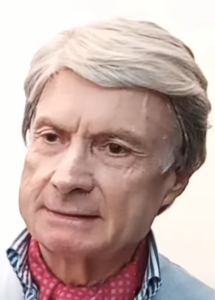A Brief History of the E-Cat

The E-Cat is the creation of Italian inventor Andrea Rossi, whose work on the E-Cat was initially inspired by the announcement of physicists Martin Fleischmann and Stanley Pons in 1989 that they had been able to generate anomalous heat from an electrochemical cell. Their effect began to be referred to as ‘cold fusion’ and generated a lot of media attention.
Dr. Rossi, among others, tried to replicate the Fleischmann and Pons effect, but was unsuccessful. Nevertheless he continued to do experimental and theoretical research in an effort to find ways to produce anomalous energy. Eventually he found a method that was able to consistently generate excess heat, and the E-Cat (Energy Catalyzer) was born. Dr. Rossi founded Leonardo Corporation in 1996 to commercialize the E-Cat.
Dr. Rossi eventually teamed up with University of Bologna physics professor Sergio Focardi, who had himself been researching in the same field, and together they worked on development of the E-Cat. In January 2011, they held a press conference at the University of Bologna in which they publicly demonstrated the E-Cat.
Initially, the E-Cat was designed to produce only heat. This was no ordinary heater, however, since the heat energy output of the E-Cat was far in excess of the electrical energy input.
As Andrea Rossi’s research and development continued, he discovered a method to generate not only heat, but also electricity from the E-Cat, and this led to the creation of the current E-Cat SKLep and MiniSKLep models that will be the first mass-produced products that will be made available to the public. These E-Cats generate far more electricity than they consume.
After much study and experimentation with his E-Cats, Dr. Rossi has set forth a theoretical model to explain the anomalous energy production from his invention in a paper, “E-Cat SK and long-range particle interactions“. In the paper proposes a mechanism to extract electromagnetic energy from the vacuum of space, or zero-point energy.
Dr. Rossi is not one to be satisfied with past accomplishments. He has said that as long as he has the ability to work, he will continue to try to improve and refine his devices with the desire to provide a useful technology that can be of benefit to the whole world.

